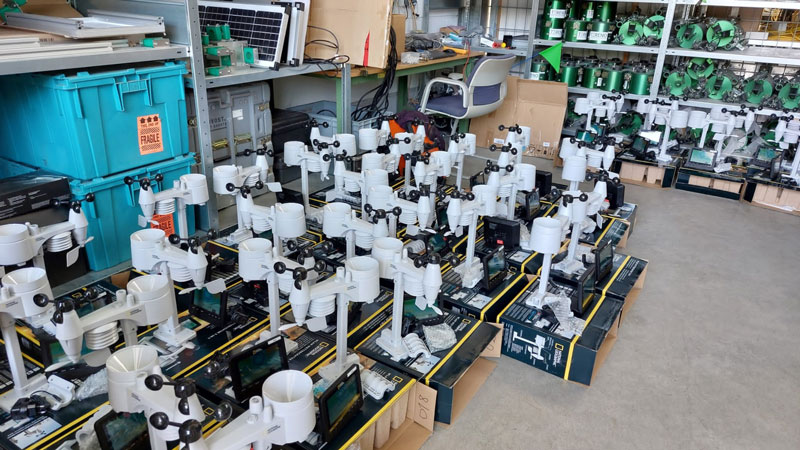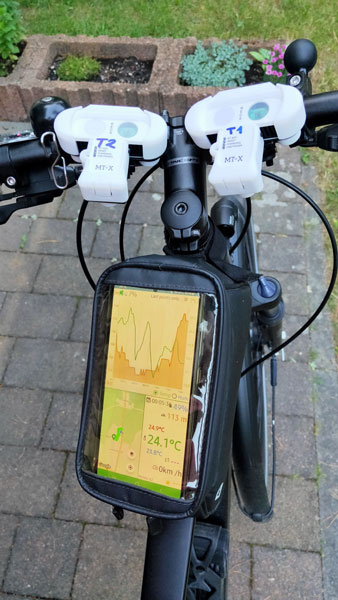by Christine Liang (Helmholtz Centre for Environmental Research) and the CityCLIM Consortium
Cities are a major contributor of greenhouse gases (75% of global CO2 emissions, according to UNEP [R1]) and are highly affected by climate change events such as heatwaves. However, cities also have the resources and power to be catalysts for change and can play a vital role in climate action. The CityCLIM project mobilises citizens with a variety of methods to raise awareness, contribute data and promote climate adaptation solutions.
Citizen science, or the participation of people in scientific processes who are not institutionally linked to that particular field of science, has innumerable social benefits ranging in scale of influence from increasing awareness in participants, to contributing to policies and national reports. Citizen science pushes the boundaries of research by expanding observation networks and databases in scope and availability to a larger extent or variety of spatial and temporal coverage. In the context of urban climate monitoring, citizen science offers potential solutions for capturing the high heterogeneity of climate conditions within a city.
CityCLIM is an EU Horizon-funded project that foresees the assimilation of in situ, space-based (e.g. Copernicus) and airborne earth observation (EO) data into a high-resolution (UltraHD) weather model to enhance forecast quality and provide City Climate Services (e.g. Heat Island Simulation and Strategies) to end users. Different simulation model outputs can provide valuable insights to city planners and decision-makers. For example, users from city administrations or the interested public can explore how Land Surface Temperature (LST) in a city changes when urban characteristics are modified (e.g. what if there was more green space instead of a parking lot). The project is driven by four pilot cities addressing diverse cultural and climatic regions in Europe (Luxembourg, Thessaloniki, Valencia, Karlsruhe).
The CityCLIM project is not only unique in terms of its high-resolution model, near-real-time simulations, and urban suitability, but also for its use of citizen science as an emerging data source. The project explores the spectrum of citizen science ranging from least to most buy-in: from initial engagement (interactive awareness raising) to crowdsourcing (collecting data from the public) to participatory action (citizens collect data and analyse it). The three citizen engagement tools used in the project are:
- The Individual Weather Map [L1] is a way that citizens can engage on an individualised level with their local urban climate conditions using an interactive slider to indicate levels of personal temperature preference. Through this, citizens will be able to interact with weather/climate information (e.g. planning their commute to pass through cooler areas), which will motivate and spark interest in climate action.
- The Historical Weather Data Collection hub allows citizens to submit any personal weather records/observations in CSV format [L2] or through a survey form [L3]. Crowdsourcing historical weather data helps us gain insights into local weather and climate related processes, with a focus on providing knowledge about climate needed for the lives of citizens. It also shows citizens that climate change is already visible and detectable in their local community.
- A major aspect of the project is collection of in situ climate data (using weather stations – see Figure 1, and mobile sensors for bicycles – see Figure 2), which can be used to validate other sensor systems in the project and ground-truth climate data [L4]. The data will provide opportunities for co-design methodologies for city climate adaptation where citizens and decisions-makers work together. One advantage of co-design is that the participatory role of citizens will more likely lead to policies and adaptation measures that are more relevant to the communities they serve.

Figure 1: National Geographic Weatherstations being assembled and tested before sending to the pilot cities for use by citizen scientists to collect local climate data.

Figure 2: MeteoTracker mobile climate sensors for use by citizen scientists on their bicycles. The data is visible to citizens and researchers via a dashboard, instantly visualising the diverse climate conditions of a city in an accessible way.
The value proposition of CityCLIM is that no other service has explored urban climate using an operational weather model enriched with in situ and EO data while integrating citizen science. There is high potential that lies in the knowledge of local conditions and necessity of working with communities toward climate adaptation strategies. Facilitating citizen knowledge-sharing in decision-making can also foster a greater sense of civic duty and future climate action. Overall, citizen science is a more responsible and inclusive scientific methodology, where full-time and volunteer experts can learn from and with each other on an equal footing. These advantages are what the CityCLIM project aims to yield with its citizen science tools for urban climate monitoring.
Links:
[L1] https://www.rtl.lu/meteo/cityclim
[L2] https://meteologix.com/ua/info/citizenscience
[L3] https://survey.hifis.dkfz.de/544485/lang/en/
[L4] https://klima.karlsruhe.de/blog/veraendern/wetterdatensammlerin-werden
Reference:
[1] UNEP, “Cities and climate change,” n.d. [Online]. Available: https://www.unep.org/explore-topics/resource-efficiency/what-we-do/cities/cities-and-climate-change.
Please contact:
Christine Liang, Helmholtz Centre for Environmental Research, Germany











